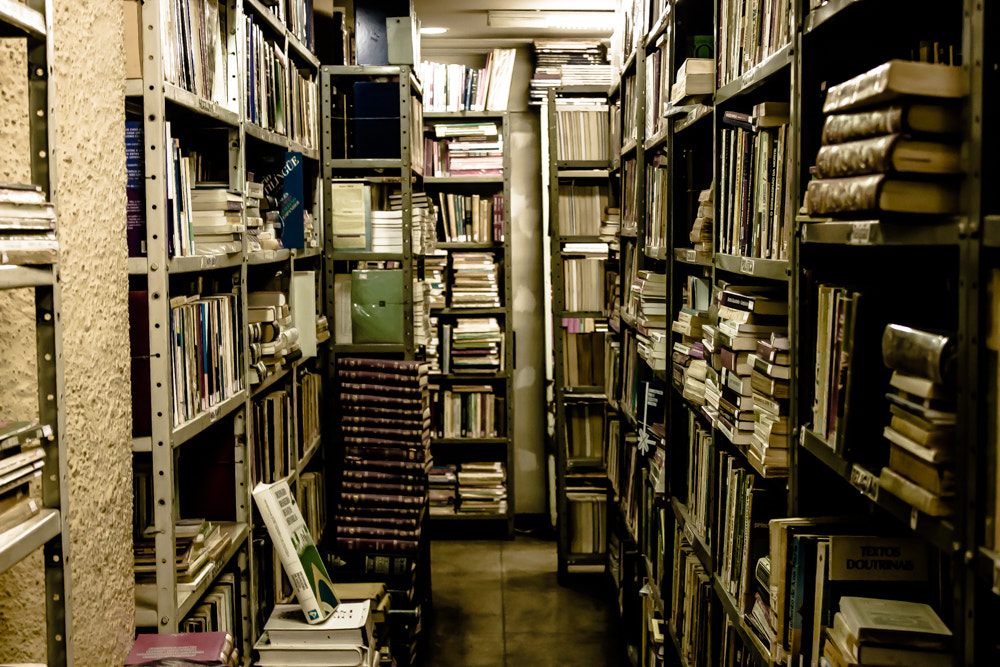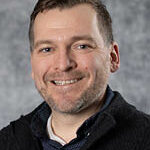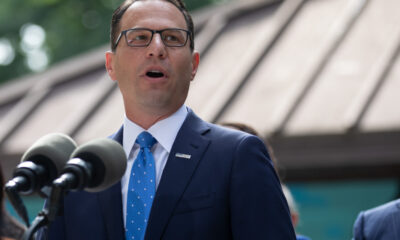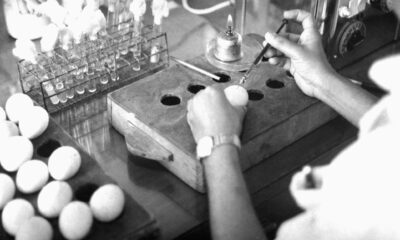Education
To Change the World, Protest Less, Study More

To change the world, one must grow up and learn how adults bring about some utterly necessary changes that address student concerns.
Congratulations class of 2024! Today we celebrate your high school graduation. High school graduation is America’s national “coming of age” tradition. Today, you are adults. Your future is finally yours.
Gen Z is America’s most educated generation ever. Your strong political opinions surely account for the “generation gap” between you and your parents and, especially your “Ok, Boomer” grandparents.
I laud your idealism and activism. The world needs it. But to become effective, authentic change-makers, you need bona fide examples.
How to change the world – Sam Mason, discoverer of micro-plastic pollution
Dr. Sam Mason is a trailblazing plastic pollution scientist. She was the first researcher to uncover the prevalence of plastic pollution in our freshwater ecosystems. Gen Z’s top concern is the environment. You know that plastic pollution is endemic. But you only know that because Dr. Mason discovered it—and then publicized it. That’s a change-maker. I want you to be like Sam, be a change-maker.
Like you, Dr. Mason became an activist at a young age. At 9, acid rain turned her favorite sitcom character’s hair green. That’s the moment when she became an environmentalist and fell in love—with chemistry.
10-year-old Sam loved chemistry’s “certainty” and “black-and-white” answers.” Life for her in Farmer’s Branch, Texas was riddled with insecurity and improbabilities. At 6, Sam’s mother abandoned her. One day she was there. And then she was not.
Overnight her single father took on multiple jobs to pay the bills. Young Sam was left in the care of an older brother. In those dark and lonely times, he sexually abused his younger, vulnerable sister. I know Gen Z struggles with mental health. Be like Sam, turn your pain into emotional rocket fuel.
How a change-maker gets made
Sam’s work ethic was born out of pain. In 1961, nearly 70% of college students studied 20 hours per week. Today, that number has fallen to 10%. Change-makers aren’t skipping class for protests. To be a change-maker requires discipline and thousands of hours of intense study.
In college, she spent 20 hours per week in a library study cubicle. There, she built 3-D models to better envision molecular interactions and chemical bonding. Those efforts paid off. In 1995 Sam graduated with a 3.99 GPA in chemistry.
Today, the average grade at the University of Texas is a B+. In the mid-1990s, when Sam was an undergrad, the average GPA at public universities was 2.8. To become a change-maker, ignore today’s lax standards and grade inflation. By not requiring excellence, we professors have failed you. So, be like Sam, and set your own high standards.
Sam essentially raised herself. All that independence created a fiercely unconventional young woman. She said of her path, “It was good to find my own way. I constantly followed my own heart.” Your helicopter parents mean well. Children don’t change the world; adults do. If your parents are doing your tax returns and paying your cellphone bill, be like Sam, and break free.
Finding a real education
After college, Sam moved to Montana where she cleaned hotel rooms and was, in her words, a “terrible waitress.” After a year, she enrolled in the chemistry Ph.D. program at the University of Montana. She could have gone to Yale or Stanford. But she found a mentor who told her, “I like to think of my lab as a sandbox and I want people to play with.” He gave Sam the “freedom to think, play, and be creative.”
Internships, informational interviews, and intense careerism have their place. Be like Sam, sometimes bumbling is the best plan.
With that confidence, Sam soared. In graduate school, she gleaned an intellectual lesson that became her life’s metaphor, “The dissertation is a blank sheet. You are writing it. You are examining it. It is up to you to do the work, much of which is terribly mundane.” Be like Sam, do what is hard and mundane—that’s what changes the world.
Campus protesters make noise. Our attention economy rewards them. But it is the serious thinkers who bend the arc of a moral universe toward justice. Dr. Mason made her mark. But she told me, “It took 20 years of being a chemist before I was ready for ground-breaking research.”
A voyage of discovery to beat any such voyage by Charles Darwin
In 2009, the skipper of the US Brig Niagara asked dozens of scientists to offer a summer class on board his vessel. Everyone said “no”—except Dr. Mason. I understand why. On the brig, she slept on a hammock next to 50 of her new best friends. When she wasn’t sailing into freezing rain, there was the heat. As for the bathroom, there wasn’t one. Then there were the “big biting black flies.” It was misery. It was torture. She loved it. For 25 weeks over 4 years, she sailed the Great Lakes in search of plastic.
Before Dr. Mason, plastic pollution meant the Great Pacific Garbage Patch. no one studied micro-plastic pollution in fresh water. The very first time Dr. Mason hauled in her manta trawl, sailors gathered around excitedly. They were crestfallen. They saw plants, bugs, algae, and zoa plankton. But Mason saw a bead of Styrofoam. That meant plastic. She said of this moment, “I grew up in Texas. If you see one cockroach there are 20,000.”
Most humans don’t change the world because the admission price is too high. Be like Sam, and see opportunities where others don’t.
These long voyages rewarded Mason with hundreds more hours in the lab. Hunched over a microscope, she searched for and then counted microscopic bits of plastic. She describes this labor as “lonely, isolating. It is the opposite of popular or social. It surely doesn’t feel heroic.”
To change the world, don’t make that your aim
Micro-beads were her first major discovery. The Microbead-Free Waters Act of 2015 resulted. This put plastic pollution into the national consciousness. What looked like overnight success was anything but. Mason laughed as she told me, “It only took 20,000 hours [of labor] before the EPA called me.” That’s when the Environmental Protection Agency phoned Dr. Mason with the news that plastic pollution was an official field of research.
To Dr. Mason the secret of changing the world is “It can’t be your aim to change the world.” She told me, “When you are in the field, you must be intellectually open to being wrong. Because sometimes what you are expecting isn’t what happens. In the field, you must be a worker ant. But you must have passion. And that is built by decades of intense intellectual labor.”
Graduates, the world needs serious, dedicated, and intellectually open people. We have enough ideologues already. Go into your labs and libraries and learn something. Be like Sam, protest less, and study more.
This article was originally published by RealClearEducation and made available via RealClearWire.
Jeff Bloodworth is a professor of American Political History at Gannon University.
-

 Accountability4 days ago
Accountability4 days agoWaste of the Day: Principal Bought Lobster with School Funds
-

 Civilization1 day ago
Civilization1 day agoWhy Europe Shouldn’t Be Upset at Trump’s Venezuelan Actions
-

 Executive2 days ago
Executive2 days agoHow Relaxed COVID-Era Rules Fueled Minnesota’s Biggest Scam
-

 Constitution3 days ago
Constitution3 days agoTrump, Canada, and the Constitutional Problem Beneath the Bridge
-

 Christianity Today1 day ago
Christianity Today1 day agoSurprising Revival: Gen Z Men & Highly Educated Lead Return to Religion
-

 Civilization2 days ago
Civilization2 days agoThe End of Purple States and Competitive Districts
-

 Executive2 days ago
Executive2 days agoWaste of the Day: Can You Hear Me Now?
-

 Civilization5 days ago
Civilization5 days agoThe Conundrum of President Donald J. Trump












